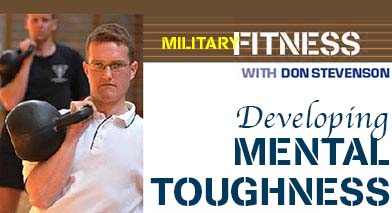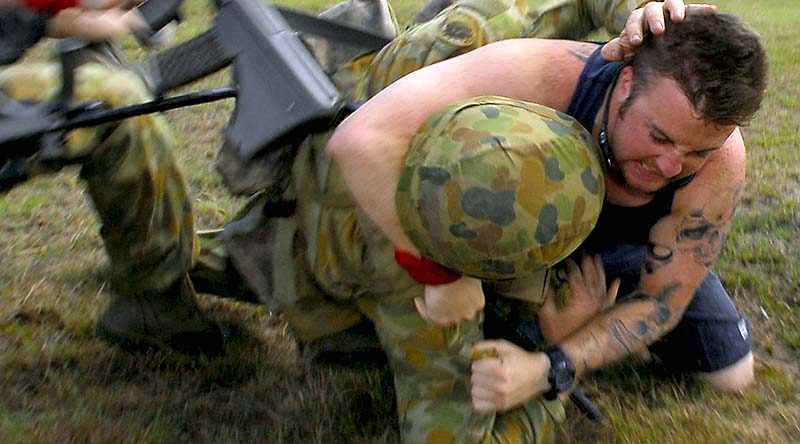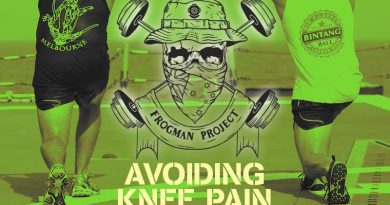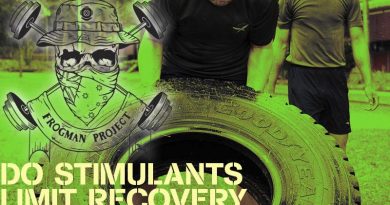Developing mental toughness


How much can you know about yourself if you’ve never been in a fight?
Tyler Durden – Fight Club
We live relatively comfortable, safe and secure lives. Even with the usual worries about jobs, money and family, most of us don’t have to worry about where our next meal is coming from or the threat of persecution for our beliefs.
This is a good thing – for the most part.
However, I believe it comes with a hidden cost – that we have a large number of people across several generations who have never known significant struggle and who are not very well equipped to deal with the mental demands of ADF service.
Before going on, I’d like to clarify that this article does not relate to PTSD, which is a serious condition and no amount of training can prepare you for the experiences of serving in a war zone.
The question I want to pose is – can you develop mental toughness. And if so, how?
I tend to believe that a person’s base level of mental toughness is largely a product of childhood experiences but that deeper reserves of toughness and resilience can be revealed through repeated exposure to progressively more challenging situations.
Much like other aspects of fitness training, mental toughness can be trained by attempting and completing more and more difficult events.
Sometimes these events are provided by life, such as the challenges presented by finding a new job or dealing with illness or injury.
 Beat The Beep Test by Don Stevenson is an 89-page complete e-guide to beep-test training and preparation.
Beat The Beep Test by Don Stevenson is an 89-page complete e-guide to beep-test training and preparation.
20% of proceeds from the sale of this e-book will be donated to Soldier On
But in the absence of external challenges it falls on the individual to seek out these situations and work through them.
The key of course is to find situations that are in the ‘Goldilocks zone’. A situation that is too easy will not provide any challenge or stimulus and a situation that is too difficult may have negative consequences, such as injury.
The aim is to find situations or experiences that are just outside your comfort zone, and complete them.
When choosing an event or activity, there are a couple of things to keep in mind.
- Everyone has different levels of comfort for different types of activities. Someone who grew up living next to the beach will probably be a lot more comfortable in the water than someone who has never had to swim in the open ocean, and things that are confronting and challenging to the second person might not even register with the first.
You will need to choose activities that target your fears and boundaries. Personally I was never much good with heights, so a couple of years ago I decided to tackle it head on and took up skydiving, declining the usual starting point of a tandem jump and going straight to solo! Needless to say, the first jump was very confronting. But by jump number four I was actually starting to enjoy myself. - It is a good idea that at least initially you choose activities that have a low real risk, even if they have a high perceived risk. The instinctive part of your brain doesn’t tend to understand the concept of real risk and instead reacts to the perceived risk, and this reaction drives the changes to your comfort zone.
As an example, if you are afraid of heights then going to an indoor rock-climbing gym or doing an abseiling course will give you exposure to a high level of perceived risk, but the actual risk that you will fall and hurt yourself is extremely low. In contrast, trying to go ice climbing or BASE jumping would expose you to an excessive level of real risk that you might not survive!
Some examples of activities that can be used to expand your comfort zone.
- Adventure sports – abseiling, rock climbing, skydiving, SCUBA diving, adventure races etc. All of these activities provide challenge and, as you progress, you can find yourself in situations that many people will never experience.
- Martial arts – I’m not suggesting that you go and start a fight club or go and get into bar brawls, but learning martial arts in a controlled environment such as a proper boxing or mixed martial arts gym will teach you a lot about yourself in a short period. My pick would be to learn something like Brazilian Ju Jitsu, as grappling provides ample opportunities for learning about stress, discomfort and thinking clearly under pressure.
- Arduous physical challenges – you will never know how far you can go until you go there. There is a good reason that the SAS and other elite military units use long-range navigation as a test of mental toughness. Long periods of humping a heavy pack over rough terrain is an excellent way to reveal character, and it is an easy one to replicate outside of the Defence Forces.
I’m not talking about a 10km-a-day stroll through the local park though. My suggestion would be to sign up for an adventure race or a 50 to 100km trail walk challenge and push yourself as much as you can.
Developing and revealing mental toughness is definitely not as straightforward as developing aerobic fitness or strength. But these tips might give you some ideas on how to tackle it.
.
.
.
.
.

.
.






